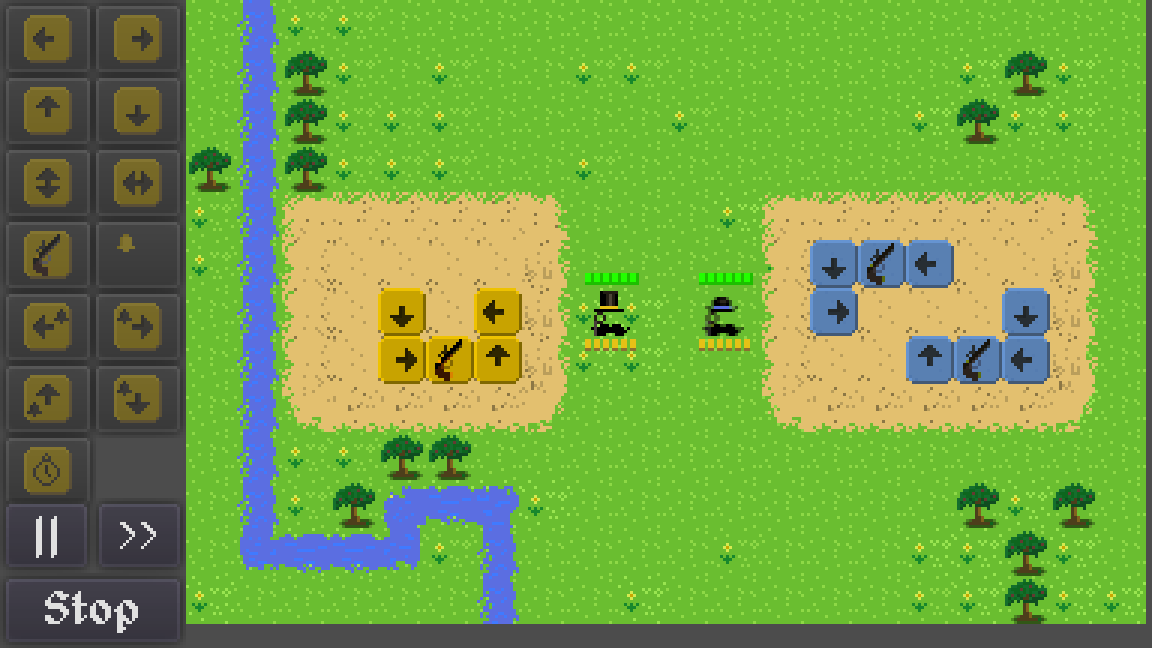Code of Honour ranked 2nd in Alakajam competition!
Alakajam is a relatively new game jam based on the Ludum Dare formula. You get one weekend to build a game from scratch, without using any premade assets. The theme of the 6th edition was “Duel”, and I teamed up with my pal Marten to make something. That something became Code of Honour:

Our original idea, born during a conference visit, was “Lemmings meets Zachtronics”. Like with the classic Lemmings game, you’d guide your cute but stupid creatures safely to the exit through a side-scrolling level. But unlike the classic, where you give them commands in real time, you’d need to place those commands in the level ahead of time. We’d have triggers and logic blocks that could be connected to form complicated algorithms. Creatures would be able to pick up and drop command blocks, leading to the possibility of self-modifying code.
Of course, this didn’t fit the Duel theme too well, so we had to adapt. A duel is usually symmetric, so it made sense to turn the game into a one-on-one pistol fight. Marten had the brilliant idea of not only controlling the opponent through the same set of command blocks as the player uses, but also making them visible, taking the guesswork out of predicting the opponent’s movements, and doubling as a kind of tutorial.
Overall I don’t think we did too badly, but the game design has some flaws that we didn’t have time to fix:
Each bell (trigger) triggers all blocks simultaneously. We didn’t have time to add a way to connect specific triggers to specific blocks. That would have added much more freedom for the player to create complex logic.
The AI opponent, though randomized in the later levels to make it less predictable, is still very stupid. This could be remedied somewhat by use of connected triggers for its movements as well. But a better approach might be to introduce some asymmetry: either more bullets/health, or more opponents (in a non-duel-themed version).
More kinds of blocks: line-based rather than tile-based triggers, stateful triggers that can be used as a 1-bit memory cell, and so on.
Despite these shortcomings (and there are always shortcomings in a 48-hour game), we ranked 2nd place overall (out of 19 teams), and got 1st place in Gameplay, Originality and Theme!
You can play the game in your browser here or check out the comments on the Alakajam entry page.
I’m aware that this blog has been awfully quiet lately. In part this is because of freelance work that I’m not blogging about here, but there are some bloggable projects that I simply haven’t written about yet. Stay tuned! While you’re waiting, you can check out Obersprengmeister and Spell Shop.